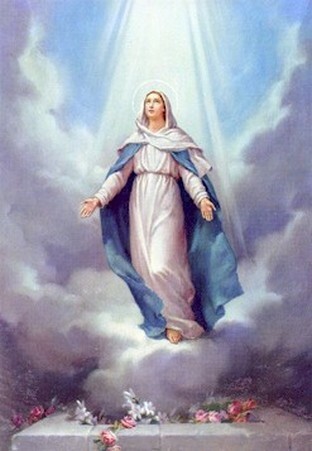
The Assumption of the Blessed Virgin Mary into Heaven at the end of her earthly life is a defined dogma of the Catholic Church. On November 1, 1950, Pope Pius XII, exercising papal infallibility, declared in "Munificentissimus Deus" that it is a dogma of the Church "that the Immaculate Mother of God, the ever Virgin Mary, having completed the course of her earthly life, was assumed body and soul into heavenly glory." As a dogma, the Assumption is a required belief of all Catholics; anyone who publicly dissents from the dogma, Pope Pius declared, "has fallen away completely from the divine and Catholic Faith." The "Magnificat," which we find in Luke's Gospel, indicates that the praise of the Holy Virgin, the Mother of God, intimately united to Christ her son, regards the Church of all times and places. The evangelist's report of these words presupposes that the glorification of Mary was already present at that time and that he saw it as a duty and task of the Christian community for all generations. Mary's words tell us that it is a duty of the Church to recall Our Lady's greatness in faith. This solemnity is, then, an invitation to praise God and to look to Our Lady's greatness since we know who God is by gazing about the faces of those who are His.
Comments (0)
To leave or reply to comments, please download free Podbean or
No Comments
To leave or reply to comments,
please download free Podbean App.